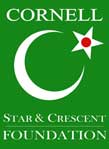ABOUT STAR AND CRESCENT
|
||
|
Through the Cornell Star and Crescent Foundation, a federally designated public charity, donors can support the chapter house with donations to underwrite renovations and improvements related to education, e.g., libraries, study rooms, Internet and computer-assisted research equipment and infrastructure, as well as the related and pro-rated overhead and operating costs (taxes, insurance, and maintenance) of designated "educational" areas within the chapter house. In addition, the Cornell Star and Crescent Foundation can provide certain kinds of financing for the same infrastructure and capital improvements to the chapter house as the University devotes to its dormitories and living units, e.g., roof, exterior, fire and life safety, and capital improvements. The foundation can also fund scholarships and awards for undergraduate members, and other students and faculty members. The broad goal of the new foundation is to improve the safety and health of the undergraduate residents residing at Alpha Delta Phi by addressing the infrastructure needs of the chapter house. While the university might pretend to be a conduit for that help, among the numerous drawbacks to using that vehicle is Cornell's obligation to use and charge for its "in house" engineering and architectural services. More significant is the fraternity's concern that it will have to pay an extra 15 to 35 percent of construction costsóbecause, in the Ithaca area, Cornell is obligated by its trade union agreements to use only union contractors from a short list of qualifying contractors. However, there are many qualified contractors in the Finger Lakes region seeking construction and repair work that can significantly underbid the union shop contractors. The result is a large savings when the fraternity can control its own funds and select its own architects and contractors. Many contributors, past and present, have hoped for a mechanism through which tax-deductible donations could directly help to preserve, protect, and defend Alpha Delta Phiónot only through polishing our reputation, but by providing for the needs and requirements of maintaining and upgrading the safety and comfort of our facility. Providing a first-class facility that remains competitive with other Cornell living options is an important key to ensuring the future of our self-owned chapter house on campus. We are in direct competitionónot only with Cornell dormitories, but also with other fraternities, occupying Cornell-owned houses, which already have been benefiting from 501(c)(3) arrangements that allow those chapters to spend fully tax-deductible moneys on their facilities without calculating the educational space usage ratio, as we have had to do, up to this point. Fraternities at the Massachusetts Institute of Technology (MIT) have obtained an Internal Revenue Service ruling that broadly signals that all normal operating expenses for a fraternity facility may be paid for by tax-deductible educational dollars that are similar to those spent by a college or university for a dormitory facility that is college or state owned. To that end, the foundation at MIT that supports the fraternities and sororities with loans using tax-deductible dollars is now making grants each semester for operating expenses to fraternities and sororities that meet certain standards. Thus, to keep up with the changing trends at Cornell and across the country, the Cornell Star and Crescent Foundation has been formed, in part, to provide the necessary legal mechanism by which our members can best support the continuing success of Alpha Delta Phi. Guided by reason and prudence, the new Cornell Star and Crescent Foundation will lead the charge in making sure that resources are available to ensure that our beloved fraternity house is ready each August to invite a new class of Alpha Delt brothers into positive and beneficial traditions and experiences that will transform their lives and instill in them an obligation to give something back to the Phi to repay their debt to their forebears. In future issues of the The Cornell Alpha Delt, I will update alumni brothers on the progress of the foundation. If you are interested in making a charter tax-deductible donation to support the Cornell Star and Crescent Foundation, you can do so by sending your contribution to: Cornell Star and Crescent Foundation, P.O. Box 876, Ithaca, NY 14581-0876. To give online right now with a credit card, click here. All gifts will be promptly and gratefully acknowledged in writing. As always, I welcome your questions and comments. I am most easily reached by email at hbs3@cornell.edu. Thank you for your support of Alpha Delta Phi at Cornell University and your ongoing efforts to address the needs of today while planning for the challenges of the future. Xaipe, Howie Schaffer '90
|

